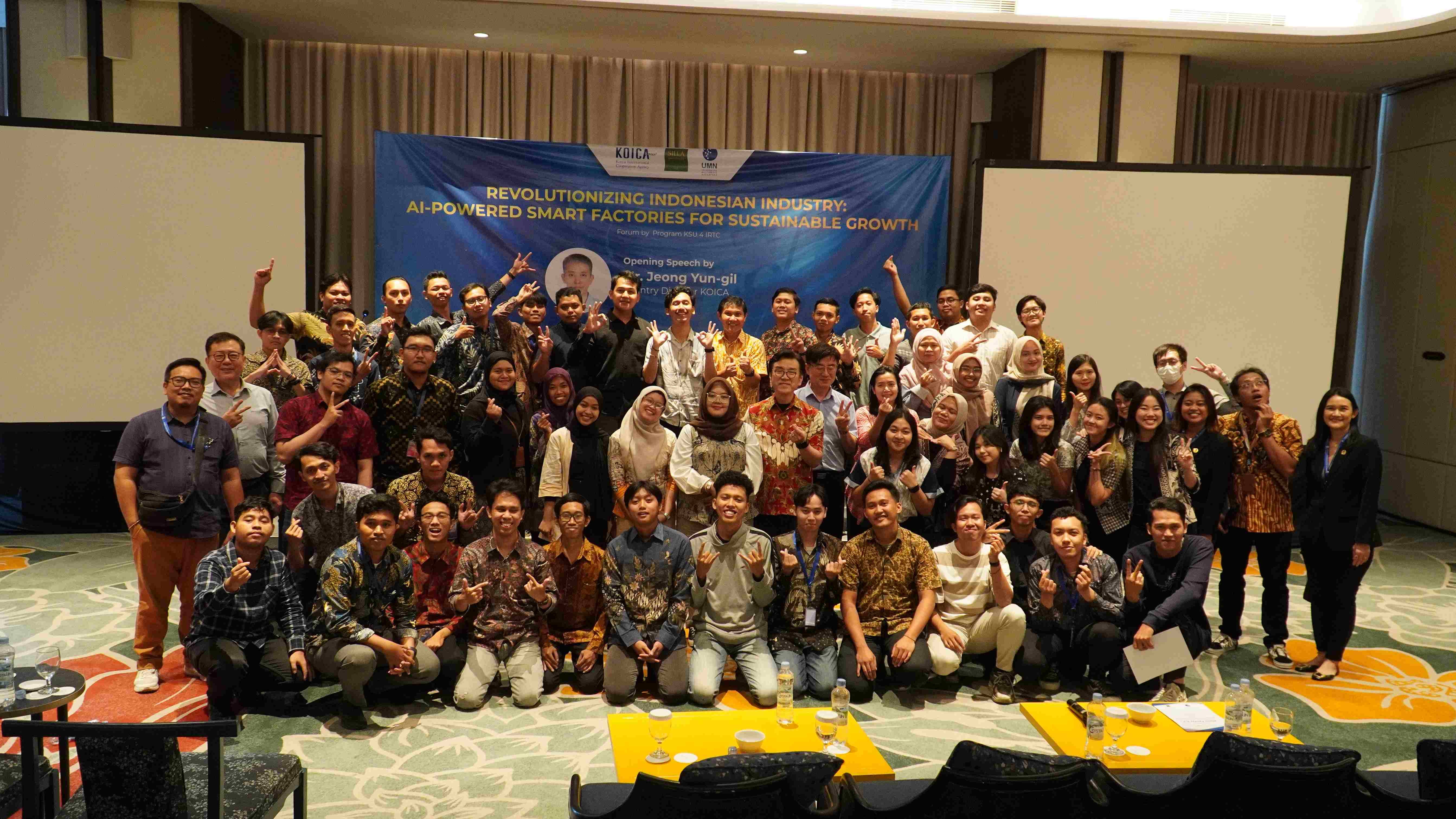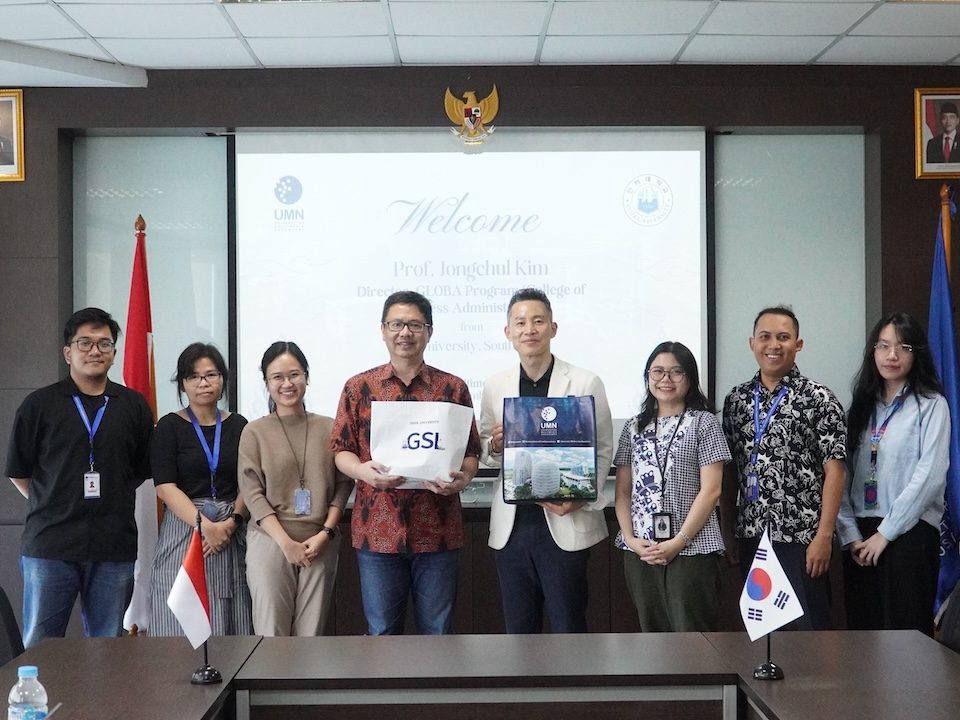
UMN, Silla University, and KOICA Held a Conference on AI & Industry 4.0 in Indonesia
December 22, 2023
National Youth Research Competition 2023 to Produced More Young Researchers
December 27, 2023
Public speaking tips for students who often feel nervous presenting. (Source: Unsplash/Marcos Luiz Photograph)
Public speaking is a skill that requires skill and courage. For some people, public speaking comes easily and can be done as naturally as breathing, but for others, it takes years of practice and dedication to achieve the confidence and poise needed for public speaking.
Are you a college student and want to know some public speaking tips? Check out this article!
Why is Public Speaking Important for Students?
For most students, including myself back in college, speaking or presenting in front of the class is one of the hardest and most nerve-wracking things to do. Despite your hatred towards public speaking, public speaking is an important skill for students, as you will be doing a lot of presentations during your studies.
Public speaking is a very important skill for many professions, especially for students who are preparing for their future careers. The ability to effectively communicate ideas, research or work in front of an audience will not only be beneficial in the classroom but also in the professional world.
Developing strong public speaking skills will help students become more confident and comfortable speaking in front of large crowds, which can help them land internships and jobs, lead meetings, and present projects. It is also an important tool that will help them develop important communication skills and critical thinking skills that are essential for success in their future endeavors.
Also read: Communication Science Major: College Info and Job Prospects.
7 Public Speaking Tips

(Source: Unsplash/Teemu Paananen)
1. Know Your Audience and Presentation Topic
Before you start crafting your message, think about who you are presenting to or for. Also, consider the theme or topic of your presentation! Are you presenting for a more serious course like Seminar Proposal? Or is it more casual? Identifying this beforehand will help you when crafting your presentation and determining your speaking style.
In some cases, you don’t always have to be too formal and can even make light jokes when appropriate. For example, presenting in front of your classmates and talking about a light-hearted topic. However, a different and more serious approach is needed if you are presenting in front of lecturers for, say, a thesis.
2. Continuous Practice
Nothing will be good without effort, commitment, and continuous practice. When preparing a presentation, you have to pay attention to every detail. With continuous practice, you can detect errors or shortcomings in the material you have prepared.
Frequent practice can also help you to feel more confident and secure if you get nervous easily!
3. Record Yourself
When you’re practicing, try recording yourself– whether it’s video or audio. Sure, recording yourself feels weird, but it’s really helpful! By recording your exercises, you can assess yourself or even have someone else assess you to check your body language, tone of voice, breath control, and how you sound and look during your presentation.
4. Prepare Presentation Materials Well
It is important to remember that it would be better and more professional if you don’t have your eyes focused on your notes when public speaking. When presenting, you have to connect with your audience and make occasional eye contact. Therefore, the amount of notes you can bring and read will be minimal.
According to Pacific College, effectively organized notes are a lifesaver if something goes wrong in public speaking. The chances of getting off track or forgetting something will be reduced with good notes. So, make sure to organize your notes in chronological order without having to write down the entire speech. Here are the points that you can write in your notes: topic, the purpose of the presentation, the main idea of the presentation, and key points in the discussion that you will cover. You can also jot down any part that you find difficult to remember or forget.
5. Make Sure You Understand What You Are Presenting
In order to be more confident when presenting, you must make sure you understand what you are talking about. This will help you remember what you have to say to your audience more easily. Trust me, your audience knows if you don’t actually understand anything about what you’re talking about.
6. Be Confident, Don’t Use Filler Words
Speak assertively and confidently. Saint Leo University explains that one of the biggest distractions as an audience member is a speaker who constantly says “uh” or “um”. These filler words are commonly used as a way of public speaking to pass the time while you think about what to say next. Make it a habit to keep quiet when you feel like using one of these filler words.
7. Pay Attention to Your Body Language
Make sure to maintain proper posture. Non-verbal communication is just as important as verbal communication when public speaking! It’s useless to prepare a great presentation if your posture and body movements are not appropriate.
Poor posture can indicate a lack of confidence. Other gestures, such as putting your hands in your pockets or crossing your arms, can also make you look disrespectful when public speaking.
Facial expressions are equally important. To release tension during public speaking, start your presentation with a smile. Maintain that smile while looking into your audience’s eyes as you speak to appear more confident and engaging. Don’t look down or up at the room.
Also read: Advantages of Communication Majors: Making the Ordinary Extraordinary.
Conclusion
Undoubtedly, public speaking is a performance that requires planning, practice, and the courage to stand in front of an audience and make a presentation. Students can apply the 7 public speaking tips described above when they want to practice and improve their public speaking skills.
Sources:
By Levina Chrestella Theodora
English translation by Levina Chrestella Theodora
Kuliah di Jakarta untuk jurusan program studi Informatika | Sistem Informasi | Teknik Komputer | Teknik Elektro | Teknik Fisika | Akuntansi | Manajemen| Komunikasi Strategis | Jurnalistik | Desain Komunikasi Visual | Film dan Animasi | Arsitektur | D3 Perhotelan , di Universitas Multimedia Nusantara. www.umn.ac.id





